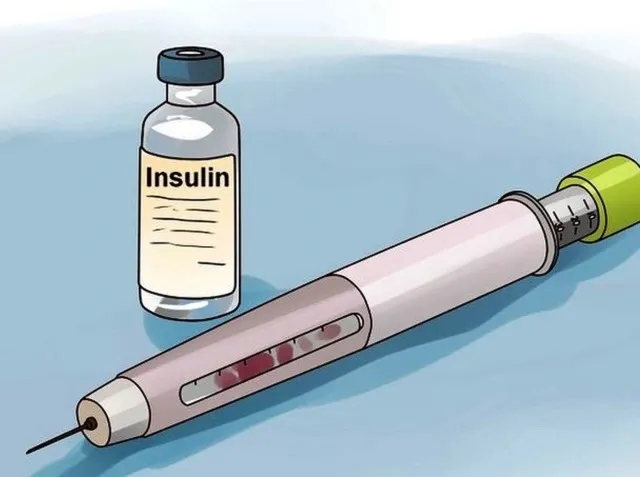Insulin is prescribed to patients who have high blood glucose levels, that is, diabetic people who fail to regulate it with a balanced diet.
Insulin is a hormone that the body produces by itself to bring glucose to the bloodstream, sugar is fuel for each body cell.
But in the case of people who have type one diabetes, the pancreas does not produce insulin and in those who suffer from type two diabetes, the body does not produce the hormone sufficient or adequately.
Therefore, the glucose remains in the bloodstream, without giving fuel to the cells and then the sugar remains at high levels.
Insulin is sold with recipe and is administered in three ways: it is injected, inhaled or applied intravenously.It is recommended that diabetic people exercise and a balanced diet.
Insulin is recommended for people with type one or two diabetes.The injectable solution is rapid action.
Some of the most frequent side effects on people are:
- Weight increase.
- Swollen arms or legs.
- Low blood glucose levels, so it is important to apply the dose that the doctor indicates.
- Reactions at the injection place, such as redness and itching.In addition, skin changes, such as thickening.
- Low level of potassium, which manifest with symptoms such as: tiredness, weakness, muscle cramps, respiratory problems and heart rate problems.
- Being thirst in excess is one of the signs of tasteless diabetes, a different type to mellitus that implies high levels of blood glucose.
This type of diabetes is rare and is characterized both by an abundant urine production and by causing excessive thirst, even when liquids have been taken to satisfy, as indicated by the Mayo Clinic portal.
Polydipsia is more frequently a consequence of the loss of body water although it can also be a primary disorder of water intake, says the Empedium site financed by the Ministry of Science and Professional Education of Poland.


